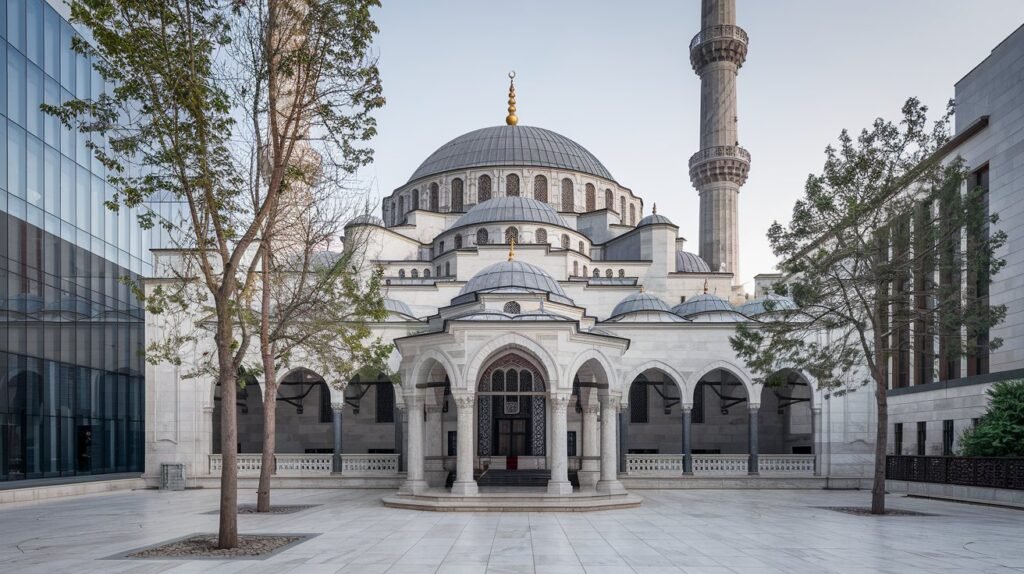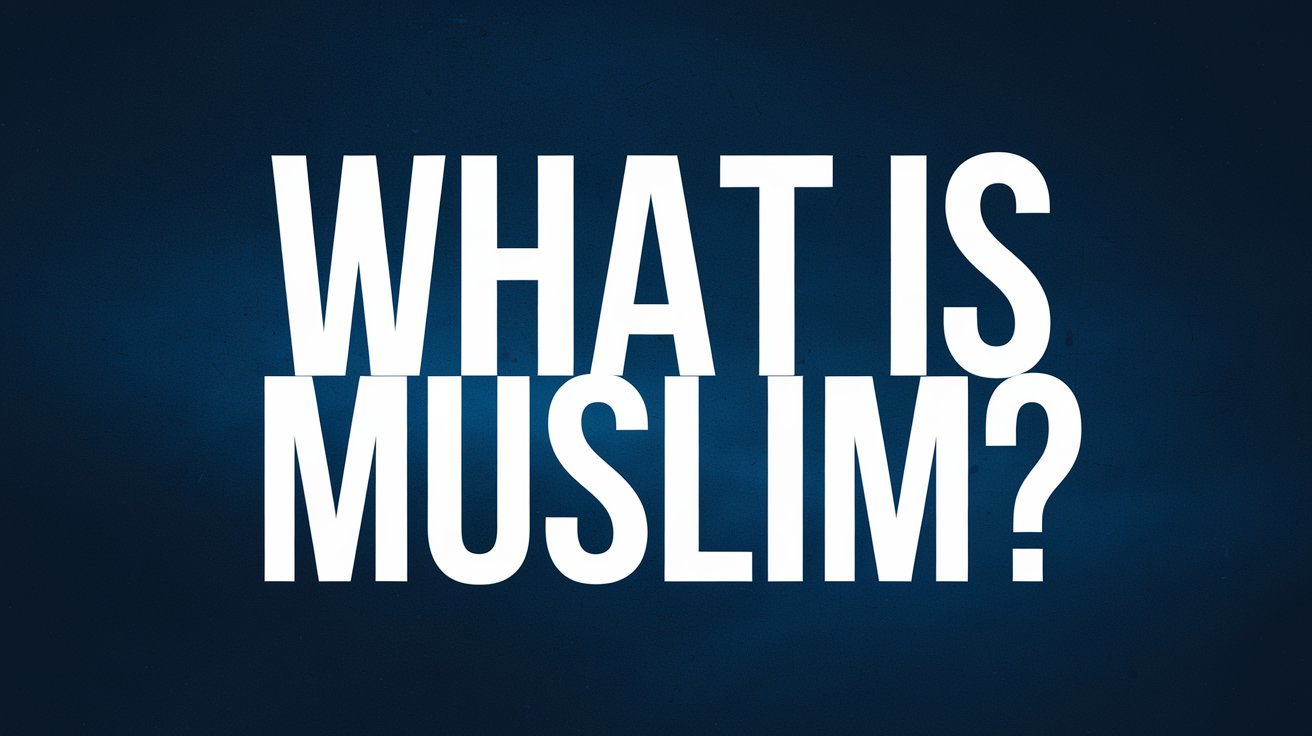Introduction
The term “Muslim” often evokes a deep curiosity about identity, faith, and history. As followers of Islam, Muslims comprise over 1.9 billion individuals worldwide, united by a shared belief in one God (Allah) and the teachings of the Prophet Muhammad (peace be upon him). This article delves into the fundamental questions about being a Muslim, the history and culture of Islam, its beliefs, and its lasting impact on civilization.
What Is the True Definition of a Muslim?
A Muslim is someone who submits to the will of Allah and follows the teachings of Islam, the religion revealed to the Prophet Muhammad through the Quran. The term “Muslim” derives from the Arabic word “Islam,” which means submission or surrender. Therefore, a Muslim is one who surrenders to Allah in devotion, embodying faith and righteous conduct.

What Does It Mean to Be Muslim?
Being a Muslim encompasses a holistic lifestyle guided by faith, ethics, and the pursuit of spiritual connection with Allah. Muslims are obligated to practice the principles of Islam in their daily lives, which include worship, charity, fasting, and moral integrity. To be Muslim is to strive for balance between personal spirituality and social responsibility.
What Is the Short Definition of a Muslim?
Simply put, a Muslim is an adherent of Islam who believes in one God, Allah, and follows the Quran and the teachings of Prophet Muhammad. This concise definition encapsulates the core identity of Muslims.
Why Is It Called Muslim?
The term “Muslim” is derived from the Arabic root word s-l-m, meaning peace, submission, or surrender. The connection to peace signifies the spiritual tranquility that comes from submitting to the divine will. Muslims see their identity as intrinsically tied to this harmonious relationship with Allah.
Is Muslim a Religion?
No, “Muslim” is not a religion; it refers to the followers of Islam. Islam is the religion, and Muslims are its practitioners. This distinction clarifies that Islam is the faith, while “Muslim” denotes the people who adhere to it.
Islam vs. Muslim
The terms “Islam” and “Muslim” are interconnected but distinct. Islam is the religion, comprising its beliefs, practices, and teachings, while a Muslim is an individual who follows Islam. Essentially, Islam is the faith, and Muslims are its adherents.

Islam Religion: History and Beginnings
Islam traces its roots to the Arabian Peninsula in the 7th century CE when Prophet Muhammad received divine revelations. The religion rapidly spread across the Middle East, North Africa, and beyond, shaping the political, cultural, and scientific landscapes of many societies. Today, Islam is the second-largest religion globally, emphasizing monotheism and ethical living.
Muslim Culture
Muslim culture is rich and diverse, reflecting the traditions, values, and lifestyles of Islamic communities worldwide. Central to this culture are practices such as daily prayers, modest clothing, and dietary restrictions like halal food. Art, architecture, literature, and music within Muslim societies often revolve around Islamic themes, showcasing the beauty of devotion and creativity.
Islam Beliefs: A Cornerstone of Muslim Identity
Muslims share a unified belief system that revolves around six core tenets:
- Belief in Allah: The oneness of God, who is merciful, omnipotent, and omniscient.
- Belief in Angels: Spiritual beings created by Allah to perform divine tasks.
- Belief in Prophets: Including figures like Adam, Moses, Jesus, and Muhammad as the final prophet.
- Belief in Holy Books: Scriptures such as the Quran, Torah, and Gospel, with the Quran as the ultimate guide.
- Belief in the Day of Judgment: Accountability for one’s deeds in this life.
- Belief in Divine Decree: Acceptance of Allah’s ultimate wisdom and plan.
The 5 Pillars of Islam
At the heart of Islam are five essential practices that every Muslim is expected to fulfill:
1. Shahada (Faith): The declaration of faith: “There is no god but Allah, and Muhammad is the messenger of Allah.”
2. Salah (Prayer): Performing five daily prayers to maintain a connection with Allah.
3. Zakat (Charity): Giving a portion of wealth to those in need, fostering social equity.
4. Sawm (Fasting): Observing fasting during Ramadan to cultivate discipline and empathy.
5. Hajj (Pilgrimage): Undertaking a pilgrimage to Mecca at least once in a lifetime, if financially and physically able.
How Old Is Islam?
Islam is over 1,400 years old, originating in 610 CE with the first revelations to Prophet Muhammad. However, Muslims believe that Islam is the culmination of a divine message that began with earlier prophets, making its roots ancient and deeply interwoven with human history.
The Symbol of Islam
The crescent moon and star are often associated with Islam, although they are not religious symbols ordained by the Quran or Hadith. Historically, these symbols became linked to Islamic empires. However, the true symbol of Islam is the Quran itself, as it embodies the faith’s principles and guidance.
Why Is Muslim Identity Important?
Muslim identity is grounded in spiritual devotion, ethical conduct, and a sense of belonging to a global ummah (community). This identity transcends ethnic, cultural, and national boundaries, uniting Muslims through shared beliefs and practices.
Islam and Science
Islam has historically contributed significantly to scientific advancements, especially during the Golden Age of Islam (8th-13th centuries). Scholars like Al-Khwarizmi, Avicenna, and Al-Biruni excelled in fields like mathematics, medicine, and astronomy, reflecting Islam’s emphasis on knowledge and discovery.
FAQs
What is the true definition of a Muslim?
A Muslim is someone who submits to the will of Allah and adheres to the teachings of Islam as revealed in the Quran and the Sunnah of Prophet Muhammad.
What does it mean to be Muslim?
To be Muslim means to live a life dedicated to Allah, follow Islamic teachings, and embody virtues like honesty, compassion, and patience in daily interactions.
Is Muslim a religion?
No, Muslim refers to followers of Islam. Islam is the religion, and Muslim is the term for its adherents.
What are the 5 Pillars of Islam?
The 5 Pillars are Shahada (Faith), Salah (Prayer), Zakat (Charity), Sawm (Fasting), and Hajj (Pilgrimage). They represent the core practices of Islam.
How old is Islam?
Islam is over 1,400 years old, with its origins dating back to 610 CE during Prophet Muhammad’s revelations.
What is the difference between Islam and Muslim?
Islam is the faith, encompassing beliefs and practices, while Muslims are the individuals who practice Islam.
Conclusion
Understanding what it means to be a Muslim requires exploring the rich tapestry of faith, history, and culture that defines Islam. From its profound spiritual teachings to its emphasis on ethical living and community, Islam provides a comprehensive guide to life. For Muslims, the journey of faith is one of peace, submission, and unwavering devotion to Allah.










